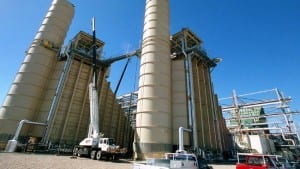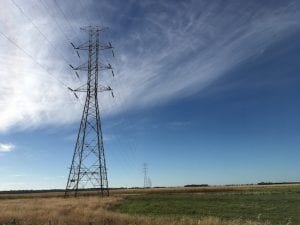Locality Planning Energy, one of the first of a series of small electricity retailers to ask customers to switch providers or face a huge hike in their power bills, has announced a $30 million boost to its kitty after opting out of the retail energy market.
The Queensland-based and ASX-listed LPE said in a market announcement that it has undertaken a “transformative restructuring exercise” to focus on its original business of selling electricity to strata communities in Queensland.
“This change in strategy will remove a costly overhang and will result in $30 million flowing back to LPE from: $8m released from cash backed bank guarantees for AEMO credit support; and $22m realised from unwinding wholesale electricity hedge positions,” the statement said.
“This is a transformative restructuring exercise delivering a positive outcome for all stakeholders,” LPE chair Justin Pettett added.
“Moving forward, the Board will focus on growing the more stable strata business and developing the vertically integrated renewable assets which have the potential to create significant value for shareholders.”
But the move has raised eyebrows in the industry, coming just weeks after LPE declared that soaring wholesale electricity prices meant it could no longer provide a competitive offer to its 21,000 retail customers in Queensland.
As RenewEconomy has reported, the Maroochydore-based LPE is certainly not the only company to have taken this approach to the ongoing crisis in the National Electricity Market, that has been fuelled by the soaring cost of fossil fuels.
ReAmped Energy and Discover Energy have also asked customers to leave, while others like Amber Electric and Diamond Energy have been limiting new sign-ups to customers with solar and or a home battery.
The very real threat to the business models of smaller retailers was laid bare just this week when Byron Bay-based Enova Energy was forced into voluntary administration, declaring it “impossible to operate” in the current market conditions.
One of the major downfalls for some of the new guard of small retailers is not having adequate insurance – or hedges – against market volatility; although “market volatility” seems like a major understatement for the set of unprecedented events and settings that have battered the NEM over the past six months.
As David Leitch puts it here: “Retailers make a profit because the cost of buying big and long is less than the cost of buying small and short. Retailers cover the risk of big and long by spreading sales over many customers, thereby statistically ensuring that their load is effectively long and diversified against the risk of any one customer.”
This is an inherently tougher game for smaller retailers than it is for the Big Three gen-tailers who, Leitch notes, have two-thirds of the contestable NEM customers and about 50% of all NEM operational volumes.
In LPE’s case, however, observers say the value of the wholesale electricity hedge announced on Monday suggests its customers would have been priced well below the Direct Market Offer, begging the question of why the push – including threats of much higher bills – to move them along.
LPE first wrote to customers in mid-May advising them to change to another company that could afford to keep its retail offer in more affordable territory amid the wholesale market chaos.
“Within the next 24 hours, we encourage you to seek an alternative supplier,” LPE chief executive Damien Glanville said in a letter to customers published on the company’s website in May.
“This was not an easy decision to make but as always, our customers are our priority. As a local business, we understand the financial pressures families are currently facing, and we did not want to have to materially increase our prices which would have added to this stress.”
Glanville also posted a video message on the company’s Facebook page, assuring customers that the letter asking customers to leave was “not a hoax,” and last week appeared on ABC TV’s 7.30, decrying the “opportunistic, money-making schemes” from generators.
“The generator sits back and laughs because he gets paid no matter how bad he behaves,” Glanville said on the program.
“To be blunt, it’s a failed industry … it’s failed the people, and greed’s won the day.”
None of these statements is unreasonable, and Glanville is far from the only person to be levelling accusations of “market gaming” or a “broken market” in the current crisis.
The Australian Competition and Consumer Commission has announced that it is investigating bidding behaviour by generators under the price cap that preceded the market suspension for any breaches of rules that prohibit market misconduct.
But calls are being made for regulators to keep an eye on retailer behaviour too, to ensure that customers are not being unnecessarily overcharged, or forced into potentially unsuitable new contracts, as small retail businesses shift into survival mode.
“Hedges are in place to manage risk and protect customers from price volatility. They are not there as a form of gambling so that when the roulette ball lands on your number you just go and tell your customers to leave,” said Adrian Merrick, founder and CEO of renewable energy focused small retailer Energy Locals.
“What’s worse is some customers won’t get around to leaving, and they’ll now be paying massively above what they should be paying,” Merrick said.
In its ASX statement on Monday, LPE notes that, to date, more than 70% of its 21,000 on-market customers have switched to alternate providers, with the remainder expected to be transitioned by the end of the month.
“As a result of the reduction in customers and load, $8 million in cash secured bank guarantees (securing customer load), required by the Australian Energy Market Operator (AEMO) for credit support, will be progressively released back to LPE in the coming weeks,” the statement says.
“In addition, with the rapid reduction in load from on-market customers, LPE has closed its wholesale electricity hedge book and increased electricity charges to legacy clients yet to transfer away.
“The hedge book value has closed at $22m and represents ‘in-the-money’ value of LPE’s forward electricity purchases. This will result in fixed known cash in-flows into LPE monthly over the remaining term of the hedge book, with the majority to be settled by 30 June 2023.
“With circa $30m inflow, LPE can meet its outstanding $21.2m obligation to BlackRock Group and move to a circa $6m positive net cash position upon repayment of the additional short-term loan of $2m.
“LPE’s working capital position will improve significantly and management will have considerably more time to develop the remaining businesses’ full potential,” it says.










